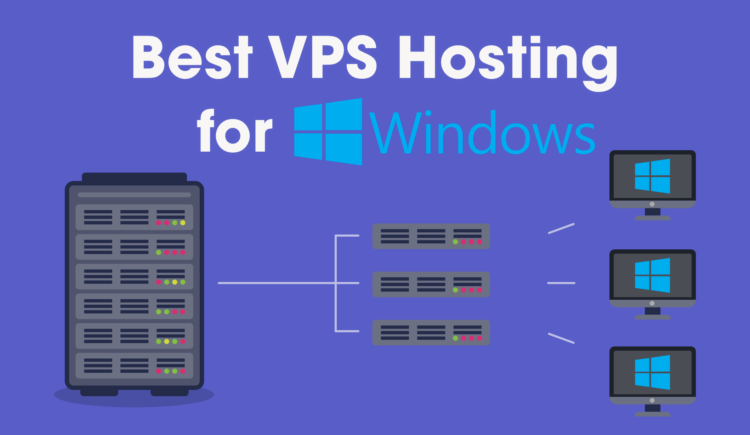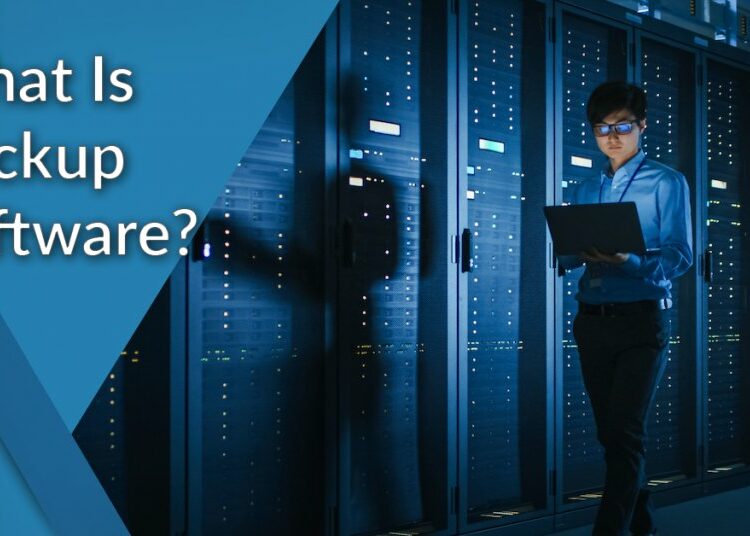Launching your dream ecommerce store requires more than just compelling products and a sleek design it necessitates a robust hosting solution that can support your business’s growth. Choosing the best ecommerce hosting from the outset is crucial to avoid potential pitfalls like downtime and performance issues that can hinder your success. While many providers offer basic plans, finding a service that can scale with your growth is essential for long-term prosperity.
Toc
- 1. Understanding Ecommerce Hosting: The Foundation for Online Success
- 2. Finding the Best Ecommerce Hosting for Your Business
- 3. Key Features to Look for in Ecommerce Hosting: Ensuring a Successful Online Store
- 4. Related articles 01:
- 5. Top Ecommerce Hosting Providers for 2024: Finding the Best Option for Your Needs
- 6. Choosing the Right Ecommerce Hosting Provider for Your Needs: A Step-by-Step Guide
- 7. Optimizing Your Ecommerce Hosting for Maximum Performance and Security: Essential Tips
- 8. Related articles 02:
- 9. Conclusion
- 10. Frequently Asked Questions (FAQ)
Understanding Ecommerce Hosting: The Foundation for Online Success

Ecommerce hosting is a specialized type of web hosting designed to meet the unique needs of online businesses. Unlike traditional hosting, the best ecommerce hosting solutions offer features specifically tailored for secure payment processing, inventory management, and high-performance delivery. By selecting the right ecommerce hosting provider, you’re laying a solid foundation for your online store’s success.
The Unique Needs of Ecommerce Websites
Ecommerce websites require more than just a visually appealing design and captivating products. They need a robust infrastructure to handle transactions securely, manage customer data, and provide a seamless shopping experience. The right hosting provider ensures that your online store runs smoothly, minimizing downtime and maximizing customer satisfaction.
Finding the Best Ecommerce Hosting for Your Business
When searching for the best web hosting for ecommerce, it’s crucial to understand the different types of hosting options available. Each type has its own advantages and disadvantages, depending on your business needs.
Shared hosting is often the go-to choice for startups and small businesses due to its affordability. However, while it may save you money initially, it comes with limitations. With shared hosting, your website shares server resources with other sites, which can lead to performance issues, limited scalability, and security concerns. If you’re just starting out, it may be a suitable option, but as your business grows, you might need to consider more robust solutions.
Virtual Private Server (VPS) Hosting
VPS hosting is a significant step up from shared hosting, offering dedicated resources and greater control over your environment. Your website is hosted on a virtual server that allocates guaranteed CPU, RAM, and storage, making it ideal for growing ecommerce businesses. With VPS hosting, you can expect improved performance, scalability, and enhanced security compared to shared hosting.
Dedicated Hosting
For large, high-traffic ecommerce sites, dedicated hosting provides the highest level of performance and security. This option gives you an entire server dedicated solely to your website, allowing for unparalleled control and customization. While it comes at a higher price point, dedicated hosting is often the best hosting for ecommerce sites that require significant resources and reliability.
Cloud Hosting
Cloud hosting is a modern and flexible solution that allows your ecommerce store to scale effortlessly. With cloud hosting, your website is hosted on a network of interconnected servers, ensuring improved reliability and redundancy. This type of hosting is perfect for businesses that experience fluctuating traffic and storage requirements, making it a smart choice for growing ecommerce platforms.
Key Features to Look for in Ecommerce Hosting: Ensuring a Successful Online Store

When evaluating the best ecommerce hosting providers, consider these essential features to ensure your online store can thrive.
Uptime Guarantee
Uptime is critical for any ecommerce business. An uptime guarantee of 99.9% or higher is the industry standard, ensuring your store remains accessible to customers almost all the time. A reliable hosting provider will minimize downtime, which can lead to lost sales and a damaged reputation.
Security: Protecting Your Customers and Your Business
Security is paramount in ecommerce. You need to protect your customers’ sensitive information and prevent fraud. Look for hosting plans that include SSL certificates, firewalls, and other robust security measures. Beyond these basics, consider features like two-factor authentication, intrusion detection systems, and regular security audits. A 2023 study by the Ponemon Institute found that the average cost of a data breach for businesses is $4.24 million. While security is crucial, some argue that focusing on user experience and fast loading speeds is more important for conversions. However, a lack of security can lead to trust issues, reputational damage, and legal repercussions.
Scalability: Growing with Your Business
As your ecommerce business grows, your hosting needs will change. Choose a hosting solution that can grow with you, allowing for seamless upgrades as your traffic and storage requirements increase. Instead of simply mentioning “seamless upgrades,” look for providers that offer auto-scaling features that automatically adjust resources based on traffic fluctuations. For example, Amazon Web Services (AWS) provides auto-scaling, where servers are added or removed dynamically based on real-time traffic demands. While some argue that manual scaling provides more control and cost efficiency, auto-scaling can be more cost-effective in the long run by preventing over-provisioning and ensuring optimal performance during traffic spikes.
Customer Support
Reliable and responsive customer support is crucial for quickly resolving any issues that may arise. Look for providers that offer 24/7 support through multiple channels, such as chat, email, and phone. Strong customer support can save you time and frustration during critical moments.
Bandwidth and Storage
Assess the bandwidth and storage capacities of potential hosting plans. Consider your current and future needs, including traffic volume, product images, and video content. The best web hosting for ecommerce should provide enough resources to support your growth.
1. https://kalimbatran.com/archive/1454/
2. https://kalimbatran.com/archive/1457/
3. https://kalimbatran.com/archive/1456/
Top Ecommerce Hosting Providers for 2024: Finding the Best Option for Your Needs

In the crowded marketplace of ecommerce hosting, several providers stand out. Here’s a look at some of the best ecommerce hosting solutions for 2024.
Bluehost
Bluehost is a well-known name in the hosting industry, and it offers ecommerce-specific packages that make it a top choice for online stores. With features like unlimited products, secure payment processing, and a user-friendly dashboard, Bluehost caters to businesses of all sizes. Its shared hosting plans start at $6.99 per month, with an impressive uptime guarantee of 99.98%.
IONOS
Formerly known as 1&1, IONOS specializes in ecommerce solutions. Its Web Hosting Expert plan includes a one-click installer for popular ecommerce platforms, a 99.99% uptime guarantee, and fast loading speeds. Starting at just $8 per month, IONOS is a budget-friendly option for new and growing online stores.
SiteGround
SiteGround is a WordPress-recommended hosting provider that excels in supporting ecommerce websites. Its hosting plans come with features like constant security monitoring, 24/7 customer support, and seamless WooCommerce integration. While the base plan starts at $4.99 per month, be aware that renewal prices can be significantly higher.
A2 Hosting
A2 Hosting offers a range of ecommerce-focused hosting packages suitable for businesses of all sizes. Its shared hosting plans start at $11.99 per month and include features like free SSL certificates, a 99.9% uptime guarantee, and compatibility with popular ecommerce platforms like Magento and Drupal.
GoDaddy
As one of the largest web hosting providers, GoDaddy also caters to the needs of ecommerce businesses. Its shared hosting plans start at $6.99 per month and provide features like 24/7 network security, global data centers, and one-click WordPress installation. However, be mindful of the potential for steep renewal fees.
HostGator
HostGator is a reputable hosting provider that offers a variety of ecommerce-specific plans. Its private VPS hosting starts at $19.95 per month and includes a 99.9% uptime guarantee, 24/7 customer support, and weekly off-site backups. HostGator is a solid choice for growing ecommerce businesses that require additional resources and control.
DreamHost
DreamHost is a trusted hosting service that provides robust ecommerce solutions. Its DreamPress plans, starting at $16.95 per month, include the WooCommerce plugin, unlimited email accounts, and a 100% uptime guarantee. DreamHost is an excellent option for businesses using WordPress and WooCommerce.
InMotion Hosting
InMotion Hosting is a versatile provider catering to ecommerce businesses of all sizes. Its hosting plans start at $2.49 per month and include features like free SSL certificates, 24/7 customer support, and optimizations for popular ecommerce platforms like PrestaShop and Magento.
Choosing the Right Ecommerce Hosting Provider for Your Needs: A Step-by-Step Guide

Selecting the best ecommerce hosting provider involves careful consideration. Follow these steps to make an informed choice.
Assess Your Business Requirements
Evaluate your current and projected traffic volume, product inventory size, budget constraints, and technical expertise. Understanding your business needs will help you choose the hosting plan that fits best. Consider your future growth plans and how they may impact your hosting needs.
Consider Your Ecommerce Platform
Ensure that your chosen ecommerce platform (e.g., Shopify, WooCommerce, or BigCommerce) is compatible with the hosting provider’s offerings. Research platform-specific hosting plans or provider recommendations to ensure a smooth integration.
Explore Free Trials and Money-Back Guarantees
Take advantage of free trials and money-back guarantees to test the hosting provider’s performance, features, and customer support before committing to a long-term plan. These options minimize risk and allow for informed decision-making.
Optimizing Your Ecommerce Hosting for Maximum Performance and Security: Essential Tips
To ensure your ecommerce store runs smoothly and securely, consider these optimization tips.
Regularly Monitor Your Website Performance
Use website monitoring tools to track key metrics like uptime, loading speed, and traffic patterns. Regular monitoring allows you to make necessary adjustments to maintain optimal performance and address potential issues.
1. https://kalimbatran.com/archive/1461/
2. https://kalimbatran.com/archive/1455/
3. https://kalimbatran.com/archive/1462/
Maintain Strong Security Practices
Implement strong security measures, such as regularly updating website software and plugins, using strong passwords, and enabling two-factor authentication. Consider utilizing reliable security plugins or services to protect your store from cyber threats.
Scale Your Hosting as Your Business Grows
As your business expands, proactively upgrade your hosting plan to accommodate increasing traffic and storage needs. Ensuring a seamless transition will create a frictionless online experience for your customers, minimizing downtime and maximizing satisfaction.
Conclusion
Choosing the best ecommerce hosting provider is a pivotal decision that can significantly impact your online store’s success. By understanding the different hosting options, evaluating key features, and considering your specific business requirements, you can find the perfect solution to support your growth. Remember, the right hosting provider can be the foundation for a thriving online business. Invest time in exploring your options and make an informed decision that aligns with your long-term goals.
Frequently Asked Questions (FAQ)

What is the difference between shared and VPS hosting?
Shared hosting is a budget-friendly option where your website shares server resources with others, while VPS hosting provides more dedicated resources and greater control in a virtual private server environment.
What is a good uptime guarantee for ecommerce hosting?
For ecommerce hosting, an uptime guarantee of 99.9% or higher is considered the industry standard. This ensures your online store is accessible to customers almost all the time, minimizing downtime and lost sales.
How can I choose the right hosting plan for my budget?
When selecting an ecommerce hosting plan, consider your current and projected business needs, including traffic volume, storage requirements, and future growth plans. Look for providers that offer a range of plans, allowing you to start with a more affordable option and seamlessly upgrade as your business expands.
How can I ensure my ecommerce website is secure?
To secure your ecommerce website, implement essential measures such as SSL/TLS encryption, regularly update your software and plugins, use strong passwords, and consider a web application firewall or security plugin. Choosing a hosting provider that prioritizes security and offers features like malware scanning can also help protect your online store.
What should I do if my website experiences downtime?
If your ecommerce website experiences unexpected downtime, first contact your hosting provider’s customer support team. Reputable providers will have a process in place to diagnose and resolve the issue as quickly as possible. Additionally, ensure that your website data is regularly backed up, so you can quickly restore your store if necessary.






